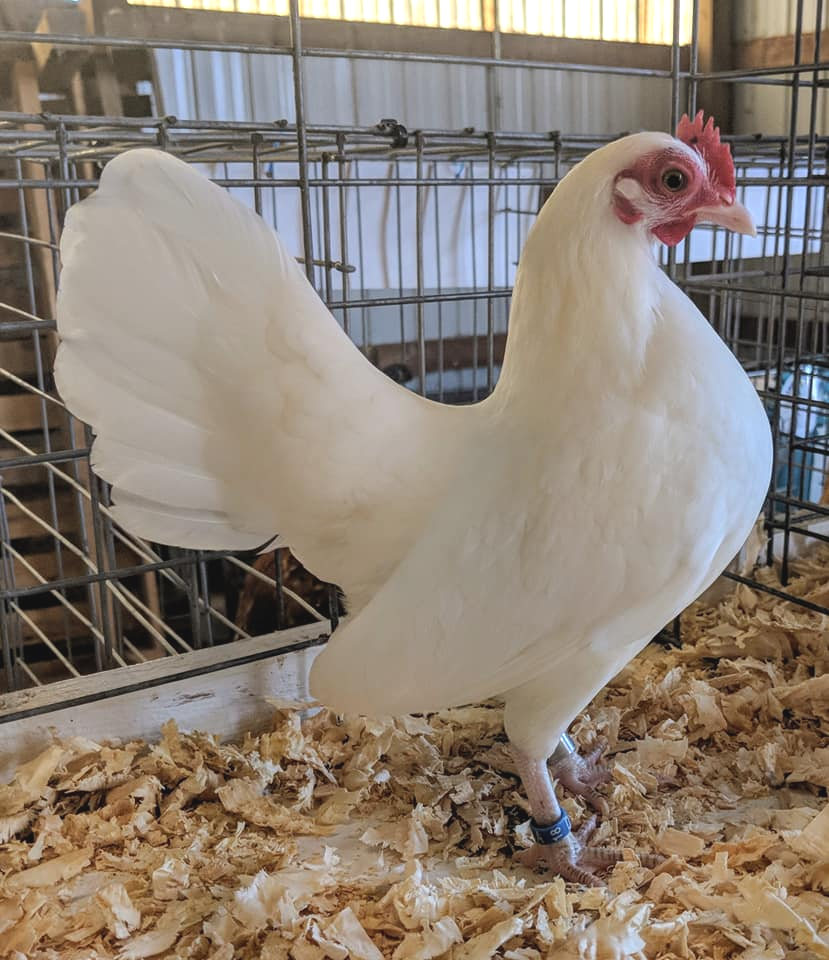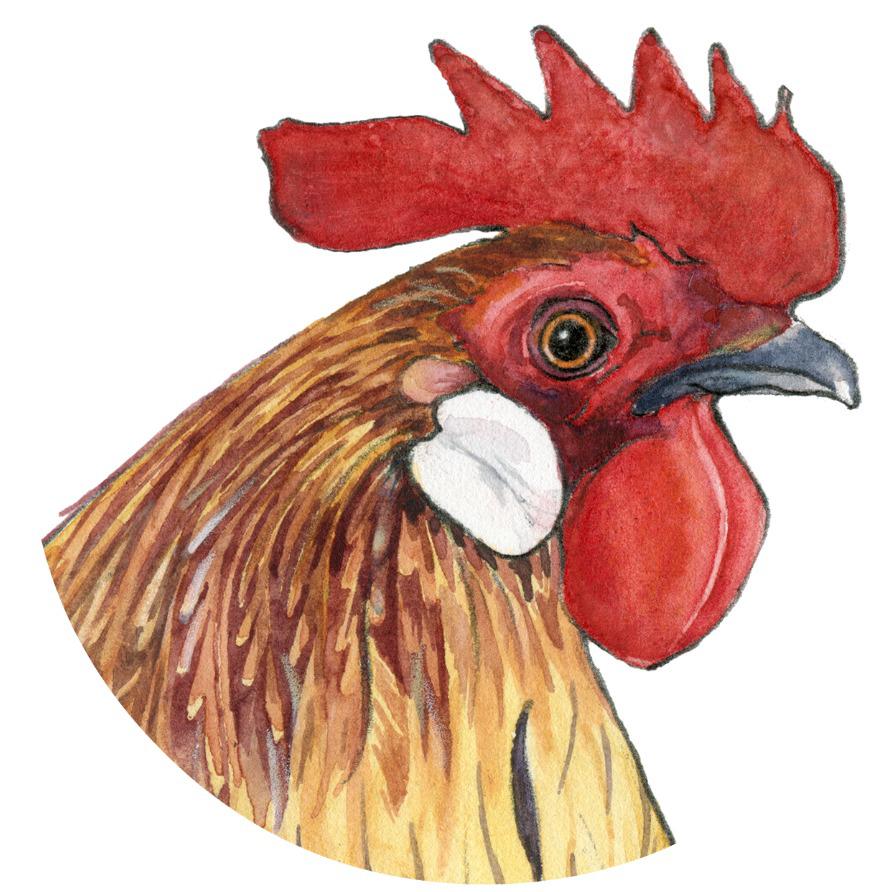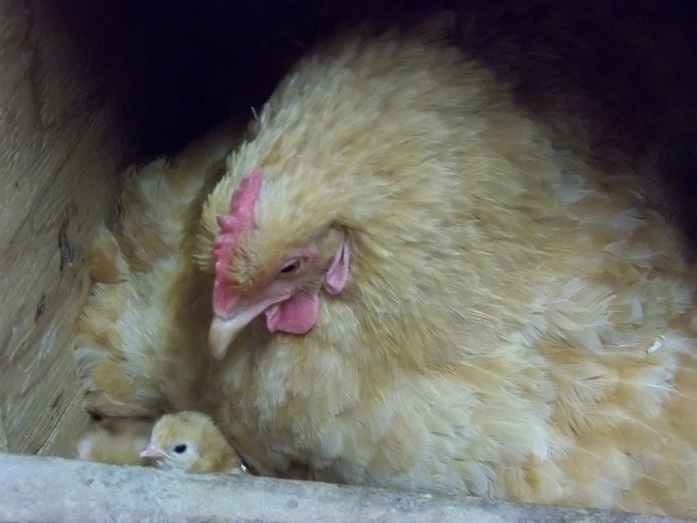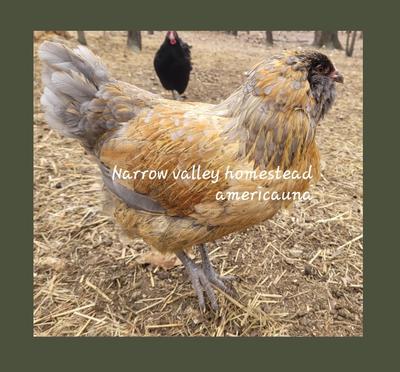Coop Training
By Rip Stalvey

If you show your birds, it won’t be long before show season is here. Coop training birds is an important part of getting birds ready for a show. It's a critical part of getting them to show their best when they are being judged. A well-trained bird that has been taught how to pose properly is a beautiful thing to see. So just how do you go about coop training?
The purpose of coop training is twofold; first is so that your bird always remains calm, and secondly that your bird will pose when being looked over by the judge. Birds that are nervous and jumping around when someone approaches the coop seldom place well.
The following training methods are ones that I have used over the years. Different exhibitors may use different training methods. I would encourage you to talk with other exhibitors as they may do things differently that may work better for you. Use what works best for your birds and your situation.
A common question most folks have about coop training is, “When should I start coop training?” Well, the answer is, it depends. Breeds that are flighty by nature can take longer to train than breeds that are more laid back. It can vary from variety to variety within a breed and even by different strains. As a rule it could take one to several weeks to properly coop train your birds. It should be noted that flightiness can be reduced by selecting breeders that are calmer in nature.
Many exhibitors use training coops like those used at shows. However, they aren't cheap, and the shipping can get pricey as well. Because of this many folks elect to make their own to help keep costs down. If you make your own, be sure to build them the same size as the ones at shows.
Once you begin the coop training process handle your birds as much as possible and do it the same way as a judge does at a show. The more you handle your birds the quicker they will calm down. I know several folks who keep a radio playing all the time in their conditioning room. They will also change the station every time they pass by. It’s a good idea to change the birds around in the coops to get them used to seeing different birds. I know several people that have recorded several minutes of audio at a poultry show and play the show sounds, rather than music, while birds are being trained. One of the main goals in coop training is to get your birds used to seeing and hearing different sights and sounds. I know of one exhibitor that says that he likes his birds so calm that he can walk down a row of coops and drag a stick across the coop front to create a clacking sound without his birds freaking out.
When you start training your birds to pose remember you'll probably use treats and it's easier to get through to a bird that's a little on the hungry side. Back in the day I used bits of raw hamburger but now I have found that Meal Worms work better, especially if they're live; birds go crazy for a live wiggling meal worm. The object is to train your birds to pose properly using the treats held in your fingers.
Training your birds to pose is how you can help your birds show themselves to their best advantage. If they lack a little in their front teach them to pose a little downward in the front. If their back is a bit too flat teach them to pose a little higher in front. To do that, hold a treat between your thumb and forefinger and move it up or down to get them to pose appropriately.
Make sure to teach your birds to pose sideways in the coop so the judge can see their type easily. To do that feed them a treat through the side of the coop. Modern Games should pose with good reach so give them their treat through the top of the coop. I would never give treats on the floor, only give them treats from your hand.
Even the location of the feeders and waterers can be used to help train your birds. For example, if your breed should have a downward tilt from the neck to tail and doesn't, place them a little higher up in the coop. If your breed should have a downward tilt in the front, place them lower down. Don’t feed your birds on the coop floor, this encourages scratching for food. When birds scratch, they naturally back up. When they do this in a coop, they can damage their tail feathers.
It's also good to introduce your birds to a judging stick while coop training. Use it just as a judge would to move birds around in the coop and pose. This will prevent your birds from freaking out when a judge does it at a show.
Here are a few final tips. Make sure to use deep bedding. I like shavings. It makes it easier to keep your birds clean. Take your own feed and water cups as well as the feed and water your birds are accustomed to when you take them to a show.
I have seen a good bird in good condition that has been properly coop trained beat a great bird that fly's around its coop in panic when being judged. Good coop training is an investment in your birds. Showing a well coop trained bird is a testament to your skill as a breeder and exhibitor.
Want to learn more from Rip Stalvey and other experienced breeders? Check out the Poultry Keepers 360 Youtube channel for some great video content.
What can we help you find? Search the website:
What's New Around Here?
-
IN - Bob White Quail
I have northern bobwhite quails available at all ages. Please contact me if interested. 765-430-1171 -
AR - Narrow Valley Homestead-BBS Ameraucana hatching eggs & chicks
We offer hatching eggs, chicks, & may sometimes have hens/roosters for sale. We are located in Harrison, Arkansas and you can find us on Facebook! https://www.facebook.com/narrowvalleyHOMESTEA -
NY - Bantam Salmon Faverolle Eggs For Sale
One dozen+ eggs ($60+shipping). Eggs are from the same line that won BV and BB at the 2024 NE Poultry Congress in Spring MA. No older than 7 days prior
Return to the Home Page










